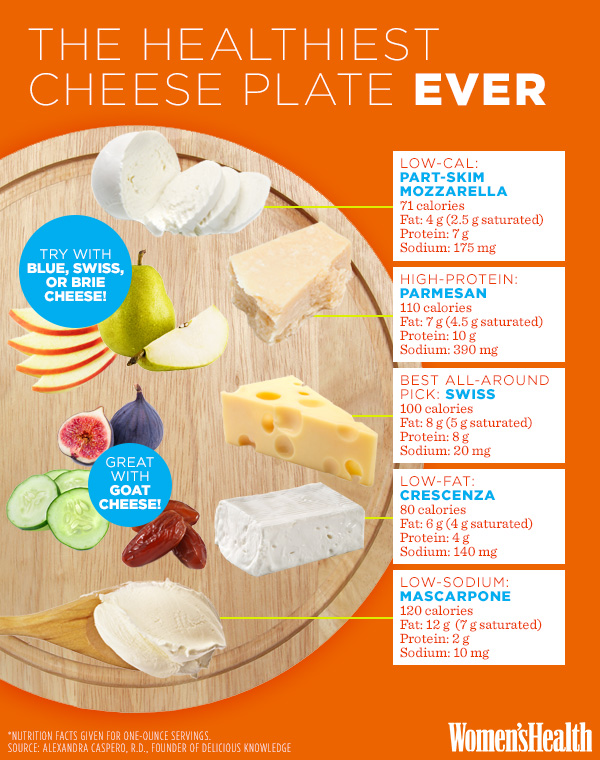
When you start a diet, one of the first things you probably think of ditching is cheese. After all, it’s full of fat and calories, so your instinct is to probably steer clear. But if you’re thinking about your health overall, a new study published in the American Journal of Clinical Nutrition shows that eating full-fat cheese could actually help your heart.
Researchers from the University of Copenhagen in Denmark studied 139 adults for a 12-week period. One group ate 80 grams of high-fat cheese every day, one group ate 80 grams of reduced-fat cheese, and the third group had no cheese, but ate 90 grams of bread and jam every day. They then measured their levels of HDL (or “good”) cholesterol and LDL (or “bad”) cholesterol.
The results will make any cheese addict cheer. They found that changes in “bad” cholesterol levels were not significantly different between subjects who had regular cheese or reduced-fat cheese. They also weren’t significantly different between subjects who had regular-fat cheese or had no cheese at all. And the levels of the “good” cholesterol tended to be higher among subjects who ate full-fat cheese when compared to people who ate no cheese at all. Other health factors like insulin, glucose, triglycerides, blood pressure, and waist circumference didn’t differ significantly between the three groups.
One gigantic caveat before you go buying a gigantic wheel of cheese: This study was partially financed by a group of dairy manufacturers, so there may have been an incentive to prove that cheese was good for you. Plus, the study had a relatively small number of participants and only measured temporary effects of eating lots of cheese, not the long-term impact of the diet change.
That said, it’s still fascinating that there was no real difference between low-fat and full-fat cheese, and that may have an impact the next time you hit the dairy aisle. And The Telegraph notes that there have been several studies pointing to cheese boosting liver health and metabolism. Nutrionists told Time that cheese is a good source of protein, calcium, and vitamin D, as long as you enjoy your night (or day) cheese sparingly.

Credits: RedOnline, Sheri L. Giblin, Women’sHealth
